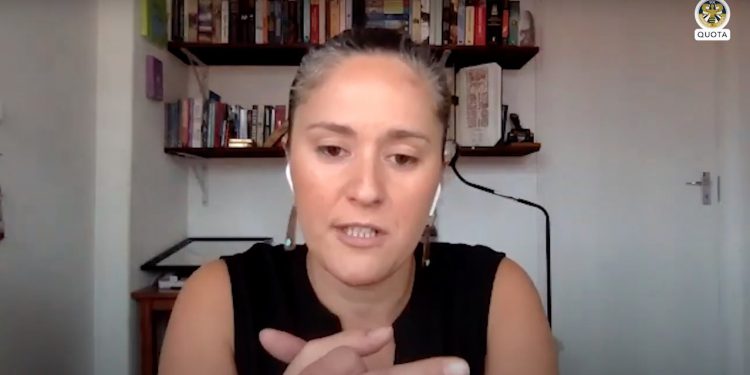Dr Laura Pereira, Research Fellow at Centre for Food Policy, City University of London, helps us join the dots from colonialism, oppression and prejudice to delivering global food security.
Every United Nations Sustainable Development Goal for 2030 is connected to the food system, Dr Pereira points out.
From the increased burden and lack of agency for women in food, to the need for a diversity of policy to match the world’s needs, Dr Pereira’s inspiration and insight point us toward better systems. You can view the full interview on Quota TV.
How can different food sectors engage with sustainability?
In some way food can touch on every aspect of our existence. One of the clearest examples of that are the Sustainable Development Goals for 2030 – they’ve linked the food system to every single one of those goals.
In policy you either talk about food in every different sector whether its agriculture, water, environment or health. It even extends into transport.
Or do you focus as food and try to fit those different sectors into this broader umbrella. I don’t think there is a right or wrong answer because it is complex.
Now that we’ve understood the complexity of the food system how can we think of governing it better? Not just by government through policy but also the way businesses engage.
How can we learn from each other?
The corporate sector needs diversity – it needs multiple businesses. Not a consolidation of only a few key actors, but opening up to a variety of actors who can specialise in different components. We need to recognise the diversity of knowledge needed to move forward.
How do we begin to solve complex food systems problems?
The food system is so complex you nudge one lever here the whole system changes. We need to ask what a desirable food system would look like and recognise our diversity of opinions.
Different food systems are going to be appropriate to different parts of the world. Once we recognise the differences we can start thinking about the actions that might help to get us there.
How does food security look around the world?
There tends to be a standard global north, global south, developed, developing country economic component to the analysis. The more research you do around the world the more you realise you have the same questions and problems within countries as well as globally.
You can look at the UK and food poverty and you can look at rich consumers in a South African context, for example. There are differences geographically but some of the similarities are almost unexpected.
What actions would help develop better food systems?
This notion of diversity is to challenge people to think about how they might be cultivating or limiting diversity in the work that they do. I think that’s relevant for businesses from imports, processing and agriculture all the way through to the restaurant, as well as policy makers, to make sure that we’re not narrowing down our options. Efficiency is also important. But we don’t think about diversity enough.
Can you explain how movements like Black Lives Matter and #MeToo intersect with food systems?
Recently we’ve seen large-scale civil society movements around the world around specific issues – everything from dealing with racial equality in the US, which is relevant globally, right through to Rhodes Must Fall, which started in South Africa but which went forward as a call for de-coloniality, to recognise the colonial past and how research needs to be done better to address this. Then, through to Extinction Rebellion or Fridays for the Future which bring an environmental component. And gender based violence, the #MeToo movement is also really important.
Just one example of how it’s connected: the embedded patriarchy, of gender roles, has a really important impact on the food system. Mothers are seen as carers and providers of nutritious meals. When they’re going to work, kids are relying on processed foods. The burden of all that gets put back onto women.
Fighting the patriarchy is linked to Black Lives Matter and the oppression that black women face on a day to day basis.
But that’s also linked to the environmental movement. We need to stand together if we are going to create some kind of change for a better society globally.
And if we think about inter-sectionality, the implications for the food system are quite clear. They are to do with gender. They are to do with colonial past. They are to do with the problem around sustainability but also the solution. Bringing those arguments together is a powerful way to move forward.























